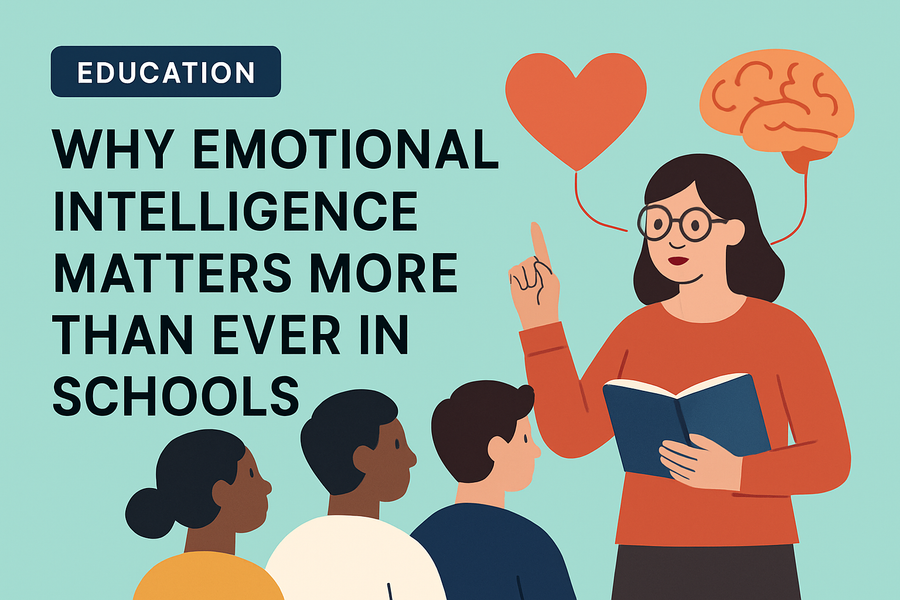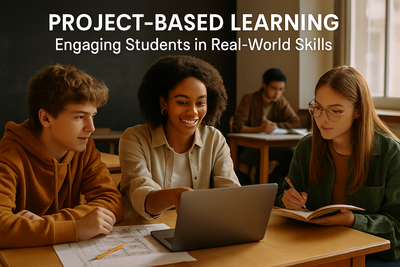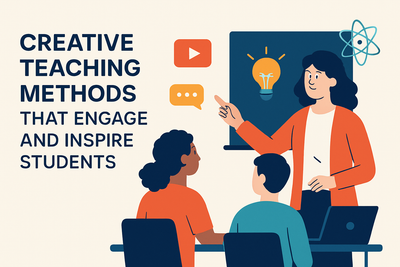Why Emotional Intelligence Matters More Than Ever in Schools
Introduction
In today’s dynamic and often stressful educational environment, academic knowledge alone is no longer enough. Students face challenges that go beyond textbooks—bullying, anxiety, peer pressure, and digital distractions are just a few of the hurdles. This is where emotional intelligence (EI) steps in as a vital component of modern education. It’s not just about understanding equations or memorizing facts, but about managing emotions, building relationships, and making responsible decisions.

This post explores why emotional intelligence matters more than ever in schools, and how investing in students' emotional growth is key to their long-term success and well-being.
What Is Emotional Intelligence?
Emotional intelligence refers to the ability to recognize, understand, manage, and influence one’s own emotions and the emotions of others. Daniel Goleman, a pioneer in this field, identifies five key components:
- Self-awareness
- Self-regulation
- Motivation
- Empathy
- Social skills
In an educational context, these skills help students navigate the classroom, manage stress, collaborate effectively, and respond to challenges with resilience.
Why Emotional Intelligence Is Essential in Today’s Classrooms
1. Improves Academic Performance
Research shows that students with higher emotional intelligence tend to perform better academically. Emotional regulation and motivation help students stay focused, manage test anxiety, and approach learning with a positive mindset.
2. Enhances Mental Health and Well-being
With rising rates of anxiety and depression among students, schools are placing greater emphasis on mental wellness. EI fosters self-awareness and coping strategies that promote emotional resilience and reduce stress.
3. Builds Stronger Relationships
Classrooms are social environments where collaboration and communication are key. Emotionally intelligent students are better equipped to resolve conflicts, show empathy, and create inclusive, respectful communities.
4. Prepares Students for Life Beyond School
In the workplace and in life, soft skills can be just as important as technical abilities. Employers seek individuals who can work well with others, adapt to change, and handle stress—all hallmarks of strong emotional intelligence.
5. Creates a Positive School Climate
When EI is embedded into school culture, it leads to reduced behavioral issues, fewer disciplinary actions, and a more supportive, engaging learning environment. Teachers and administrators also benefit from emotionally intelligent practices, improving staff morale and collaboration.
Integrating Emotional Intelligence into Education
Many schools are embracing social-emotional learning (SEL) programs to systematically cultivate EI. These programs teach students how to identify their emotions, set goals, show empathy, maintain positive relationships, and make responsible decisions.
Other strategies include:
- Mindfulness activities and breathing exercises
- Peer mentoring programs
- Conflict resolution training
- Teacher professional development in EI
These methods not only support students’ emotional growth but also enrich the entire educational experience.
Conclusion
Emotional intelligence is far more than a buzzword—it’s a critical skill set for thriving in school and beyond. By fostering emotionally intelligent learners, schools can nurture more compassionate, resilient, and successful individuals. As education continues to evolve, EI will remain a cornerstone of preparing students not just for tests, but for life.
Now more than ever, it's time we prioritize emotional intelligence alongside academics, creating learning environments where every student can truly flourish.







